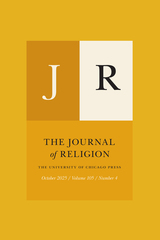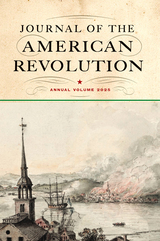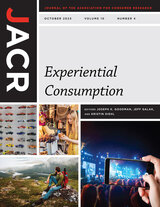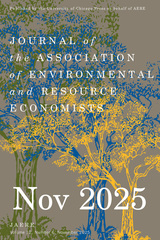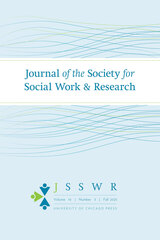3 books about Henderson, John
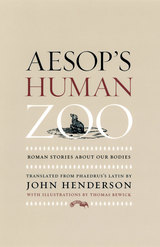
Aesop's Human Zoo
Roman Stories about Our Bodies
Phaedrus
University of Chicago Press, 2004
Most of us grew up with Aesop's Fables—tales of talking animals, with morals attached. In fact, the familiar versions of the stories attributed to this enigmatic and astute storyteller are based on adaptations of Aesop by the liberated Roman slave Phaedrus. In turn, Phaedrus's renderings have been rewritten so extensively over the centuries that they do not do justice to the originals. In Aesop's Human Zoo, legendary Cambridge classicist John Henderson puts together a surprising set of up-front translations—fifty sharp, raw, and sometimes bawdy, fables by Phaedrus into the tersest colloquial English verse.
Providing unusual insights into the heart of Roman culture, these clever poems open up odd avenues of ancient lore and life as they explore social types and physical aspects of the body, regularly mocking the limitations of human nature and offering vulgar or promiscuous interpretations of the stuff of social life.
Featuring folksy proverbs and satirical anecdotes, filled with saucy naughtiness and awful puns, Aesop's Human Zoo will amuse you with its eccentricities and hit home with its shrewdly candid and red raw messages. The entertainment offered in this volume of impeccably accurate translations is truly a novelty—a good-hearted and knowing laugh courtesy of classical poetry. Beginning to advanced classicists and Latin scholars will appreciate the original Latin text provided in this bilingual edition. The splash of classic Thomas Bewick wood engravings to accompany the fables renders the collection complete.
Providing unusual insights into the heart of Roman culture, these clever poems open up odd avenues of ancient lore and life as they explore social types and physical aspects of the body, regularly mocking the limitations of human nature and offering vulgar or promiscuous interpretations of the stuff of social life.
Featuring folksy proverbs and satirical anecdotes, filled with saucy naughtiness and awful puns, Aesop's Human Zoo will amuse you with its eccentricities and hit home with its shrewdly candid and red raw messages. The entertainment offered in this volume of impeccably accurate translations is truly a novelty—a good-hearted and knowing laugh courtesy of classical poetry. Beginning to advanced classicists and Latin scholars will appreciate the original Latin text provided in this bilingual edition. The splash of classic Thomas Bewick wood engravings to accompany the fables renders the collection complete.
[more]
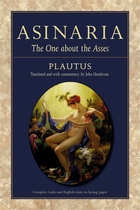
Asinaria
The One about the Asses
Plautus; Translated and with commentary by John Henderson
University of Wisconsin Press, 2006
Asses, asses, and more asses! This new edition of Plautus' rumbustious comedy provides the complete original Latin text, witty scholarly commentary, and an English translation that both complements and explicates Plautus' original style. John Henderson reveals this play as a key to Roman social relations centered on many kinds of slavery: to sex, money, and family structure; to masculinity and social standing; to senility and partying; and to jokes, lies, and idiocy. The translation remains faithful to Plautus' syllabic style for reading aloud, as well as to his humorous colloquialisms and wordplay, providing readers with a comfortable affinity to Plautus himself. An indispensable teaching and learning tool for the study of Roman New Comedy, this edition includes comprehensive commentary, useful indexes, and a pronunciation guide that will help readers of all levels understand and appreciate Plautus and his era.
[more]
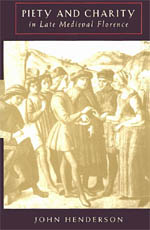
Piety and Charity in Late Medieval Florence
John Henderson
University of Chicago Press, 1997
John Henderson examines the relationship between religion and society in late medieval Florence through the vehicle of the religious confraternity, one of the most ubiquitous and popular forms of lay association throughout Europe. This book provides a fascinating account of the development of confraternities in relation to other communal and ecclesiastical institutions in Florence. It is one of the most detailed analyses of charity in late medieval Europe.
"[A] long-awaited book. . . . [It is] the most complete survey of confraternities and charity, not only for Florence, but for any Italian city state to date. . . . This book recovers more vividly than other recent works what it meant to be a member of a confraternity in the late middle ages."—Samuel K. Cohn, Jr., Economic History Review
"Henderson offers new and fascinating information. . . . A stimulating and suggestive book that deserves a wide readership." —Gervase Rosser, Times Higher Education Supplement
"[A] long-awaited book. . . . [It is] the most complete survey of confraternities and charity, not only for Florence, but for any Italian city state to date. . . . This book recovers more vividly than other recent works what it meant to be a member of a confraternity in the late middle ages."—Samuel K. Cohn, Jr., Economic History Review
"Henderson offers new and fascinating information. . . . A stimulating and suggestive book that deserves a wide readership." —Gervase Rosser, Times Higher Education Supplement
[more]
READERS
Browse our collection.
PUBLISHERS
See BiblioVault's publisher services.
STUDENT SERVICES
Files for college accessibility offices.
UChicago Accessibility Resources
home | accessibility | search | about | contact us
BiblioVault ® 2001 - 2025
The University of Chicago Press


